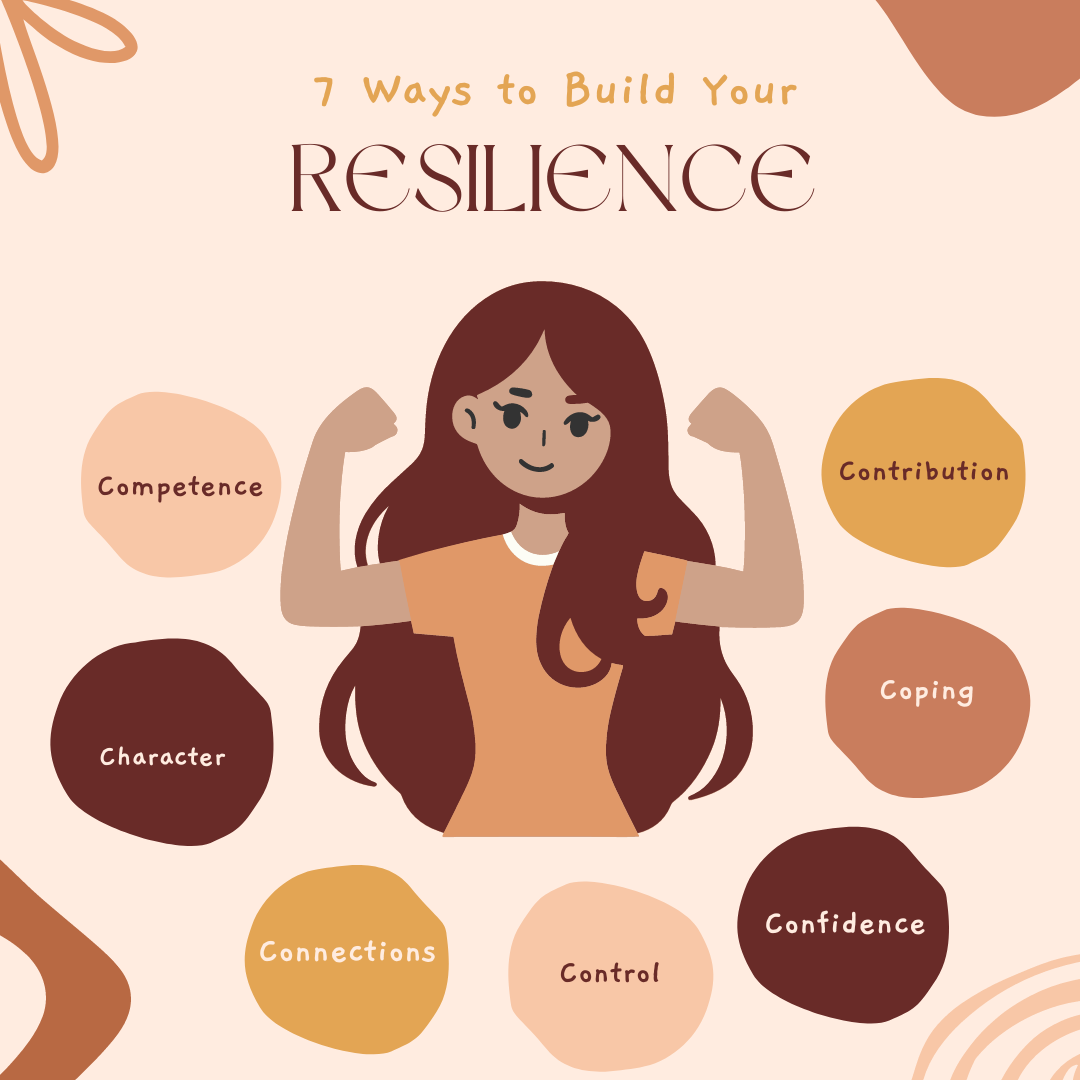What is resilience?
Life does not come with a map, and everyone will experience twists and turns.
From everyday challenges to traumatic events with more lasting impact, like the death of a loved one, a life-altering accident, or a serious illness.
Each change affects people differently, bringing a unique flood of thoughts, strong emotions, and uncertainty.
Resilience is the process of adapting well in the face of adversity, trauma, tragedy, threats, or significant sources of stress—such as family and relationship problems, serious health problems, or workplace and financial stressors.
As much as resilience involves “bouncing back” from these difficult experiences, it can also involve profound personal growth.

1. Competence
The ability to know how to handle stressful situations effectively.
It requires having the skills to face challenges, and having had the opportunity to practice using these skills so that one feels competent in resilience to deal with situations.
2. Confidence
The belief in one’s own abilities and is rooted in competence.
We gain confidence by being able to demonstrate their competence and resilience in real situations.
3. Connection
With close ties to friends, family, and community groups we are likely to have a stronger sense of security and sense of belonging.
Resilient people are more likely to have strong values and are less likely to seek out alternative destructive behaviours.
4. Character
People with “character” can enjoy a strong sense of self-worth and confidence.
We are in touch with our values and are comfortable sticking to them.
We demonstrate a caring attitude towards others.
We have a strong sense of right and wrong and are prepared to make wise choices and contribute to the world.
Aim to strengthen character through enhancing self-esteem with strengths-based work, and by skills of empathy and caring for others to build resilience.
5. Contribution
If we can experience personally contributing to the world, we can learn the powerful lesson that the world is a better place because we are in it.
Hearing the thank you’s and appreciation when we contribute will increase willingness to take actions and make choices that improve the world, thereby enhancing competence, character, and sense of resilience and connection.
6. Coping
People who have a wide repertoire of coping skills (social skills, stress reduction skills) are able to cope more effectively and are better prepared with resilience to overcome life’s challenges.
7. Control
If we have control over our decisions and actions, we are more likely to know how to make choices in a way that we can bounce back from life’s challenges.
The important thing is to remember you’re not alone on life’s journey. While you may not be able to control or have resilience in all of your circumstances, you can grow by focusing on the aspects of life’s challenges you can manage with the support of loved ones and professionals.



